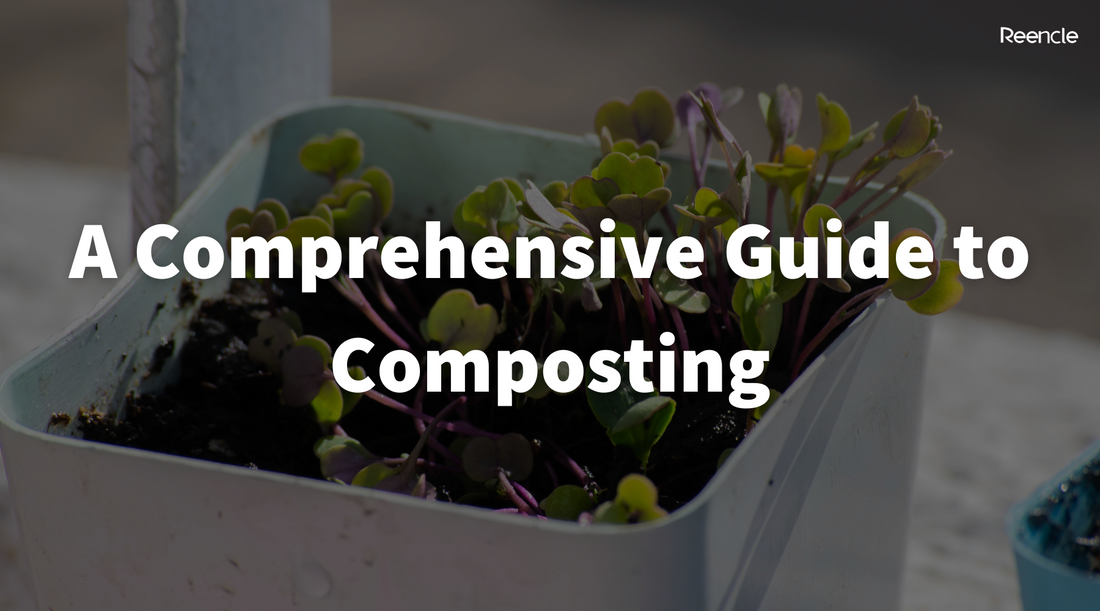Composting is a sustainable and eco-friendly practice that has gained popularity in recent years as individuals and communities strive to reduce their environmental impact. This natural process transforms organic waste into nutrient-rich soil, providing numerous benefits for both the environment and gardeners alike.
In this comprehensive guide, we will delve into everything you need to know about composting, from its ecological importance to practical tips on creating your own compost.

The Ecological Importance of Composting
1.1 Reducing Landfill Waste
One of the primary motivations behind composting is to divert organic waste from landfills. When organic materials like food scraps and yard waste end up in landfills, they decompose anaerobically, producing methane, a potent greenhouse gas. Composting, on the other hand, facilitates aerobic decomposition, minimizing methane emissions and reducing the overall volume of waste in landfills.
1.2 Soil Enrichment and Fertility
Compost serves as a natural fertilizer, enriching soil with essential nutrients. The humus created during the composting process improves soil structure, water retention, and aeration. This nutrient-rich soil enhances plant growth and resilience, contributing to healthier ecosystems and more robust agricultural practices.

Getting Started with Composting
2.1 Choosing the Right Location
Selecting an appropriate location for your compost bin or pile is crucial. Ideally, choose a spot with good drainage and access to sunlight. This encourages the composting microorganisms to thrive and accelerates the decomposition process.
2.2 Building a Compost Bin
Compost bins come in various shapes and sizes, from simple DIY designs to sophisticated commercial options. Choose a bin that suits your space and needs. Whether it's a traditional bin, a tumbler, or a worm composting system, the key is to provide adequate aeration and moisture for the microorganisms responsible for breaking down organic matter.

What to Compost
3.1 Green and Brown Materials
Composting requires a balance between green (nitrogen-rich) and brown (carbon-rich) materials. Green materials include kitchen scraps like fruit and vegetable peels, coffee grounds, and fresh yard waste. Brown materials encompass items such as dry leaves, straw, and shredded newspaper. Achieving the right balance ensures optimal decomposition and nutrient content in the finished compost.
3.2 Items to Avoid
While many organic materials can be composted, certain items should be kept out of your compost pile. Avoid adding meat, dairy, oily foods, and pet waste, as these can attract pests and pathogens. Additionally, diseased plants, invasive weeds, and treated wood or sawdust may introduce harmful elements to your compost.

Maintaining Your Compost
4.1 Turning and Aerating
Regularly turning your compost helps distribute oxygen, promoting aerobic decomposition and preventing unpleasant odors. This can be done with a pitchfork or by using a compost tumbler. Aim to turn the compost every two to three weeks, ensuring that all parts of the pile receive adequate aeration.
4.2 Monitoring Moisture Levels
Maintaining the right moisture level in your compost is essential for microbial activity. The compost should feel like a wrung-out sponge—moist but not waterlogged. Add water or dry materials as needed to achieve this balance.
Harvesting and Using Compost
5.1 Recognizing When Compost is Ready
Compost is typically ready for use when it becomes dark, crumbly, and has a rich, earthy smell. This process can take anywhere from a few weeks to several months, depending on factors such as temperature, aeration, and the types of materials used.
5.2 Applying Compost in the Garden
Once your compost is ready, it's time to reap the rewards in your garden. Spread a layer of compost on top of the soil or incorporate it into existing beds. This will enhance soil fertility, improve water retention, and encourage robust plant growth.
We have written an article on how to use compost with specific types of soil. You may find it here.

Composting is a simple yet powerful way for individuals to contribute to environmental sustainability. By diverting organic waste from landfills, enriching soil, and promoting healthier ecosystems, composting aligns with the principles of a circular economy. Whether you're a seasoned gardener or a beginner looking to reduce your ecological footprint, embracing composting is a rewarding and impactful step towards a greener future.

